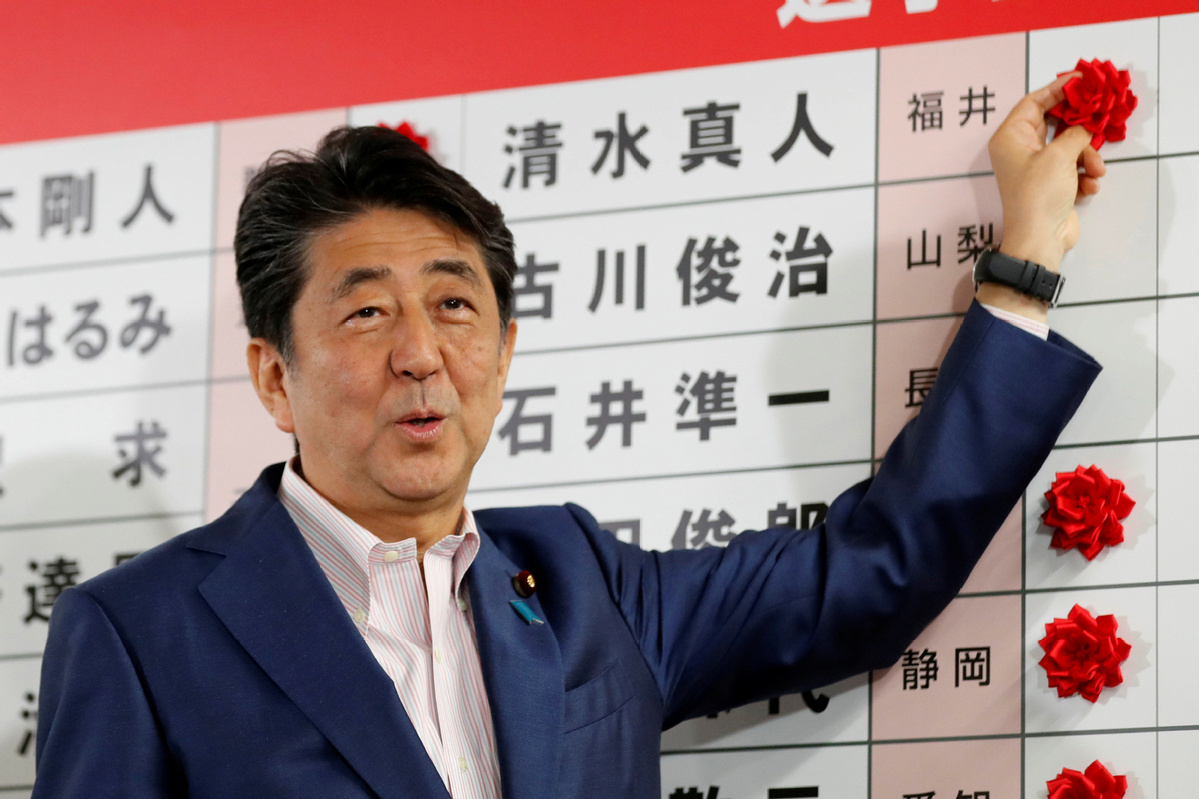Abe still trying to flog a dead horse: China Daily editorial
chinadaily.com.cn | Updated: 2019-07-22 20:32

It must have been a heavy blow for Prime Minister Shinzo Abe when he fell short of securing a two-thirds majority in Japan's upper house election on Sunday, which he needed to be able to revise the country's pacifist Constitution.
Abe has long been intent on changing the country's postwar pacifist Constitution. Having already revised policies to allow Japan Self-Defense Forces to engage in collective self-defense, he is now seeking to amend war-renouncing Article 9 of the Constitution so Japan can have a full-fledged military.
Although his ruling coalition retained its majority in the upper house in Sunday's vote for around half the seats in the chamber, it fell short of securing a two-thirds majority in favor of revising the Constitution. He now needs to reach out to opposition parties to gain support, which seems to be mission impossible.
Many ordinary Japanese people still support Article 9, and pre-election surveys suggested voters were more concerned about jobs, social security and other economic issues than constitutional revisions. The opposition parties have won votes by appealing to public concerns over the proposed increase in the sales tax from 8 percent to 10 percent.
Despite the setback on constitutional changes, Abe still has a lot to feel proud of. He is on track to become Japan's longest-serving prime minister if he stays in office until November, something that looks certain. His economic policies have lifted the Japanese economy out of two decades of deflation. As Abe said, the majority his coalition block has secured reflects a public mandate for his policies — except for scrapping Article 9, which even some in his own party do not support.
Still it is clear that he wants changing the Constitution to be part of his political legacy and his remark on Monday that the result showed voters want a debate on revising the Constitution suggests he is likely to continue to pursue this policy with greater resolve.
China naturally opposes scrapping Article 9, as it would not only raise doubts in China about Japan's commitment to peaceful development, but might also threaten its national interests, given that some in Japan have tried to depict China as a potential security threat, citing its presumed rising assertiveness in dealing with maritime territorial disputes with Japan in the East China Sea.
Keeping Article 9 intact is in the best interests of Japan and its neighbors as it will give them more time to explore ways to build mutual trust, since Japan still needs to assuage its neighbors' worries about its intentions before it builds a regular military.
























